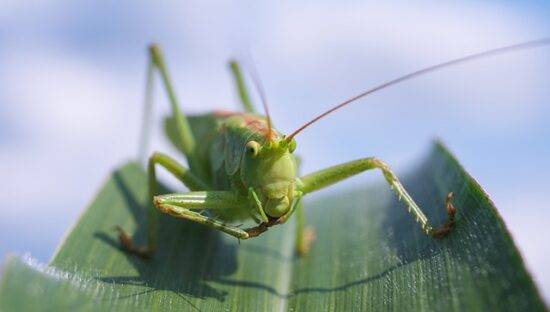Big discovery: Grasshopper ‘smell’ cancer.
Grasshopper can be used to detect cancer in its earliest stages, scientists say.
The insect can smell the difference between healthy and cancerous cells, and this discovery opens the door to new ways of detecting disease in the human body.
Their brains send out different chemical signals when they smell cancer cells, which researchers can use to create new detection devices.
All these devices would need is a sample of the patients’ breath, which is then fed into a small device that mimics a grasshooper sense of smell.
Debajit Saha, assistant professor of biomedical engineering at Michigan State University said: “Theoretically, you could breathe through a device, and it could be able to detect and differentiate different types of cancer, and it could even indicate the stage of the disease”.
“Scientists have been working on making similar devices for more than 15 years,” Saha added, but so far have failed to do so.
If they succeed in doing this, then it would have a huge impact on cancer survival rates around the world while also speeding up the time to detection.
The researchers said they decided to use the grasshooper to detect cancer cells because this type of insect had been used by scientists in similar experiments before.
This means they already knew how the grasshooper brain works, so it enabled them to speed up the time of the experiment.
They found that the grasshooper brain smelled different chemical “smells” in cancer cells compared to healthy cells.
However, the insect could not only detect cancer, but it could also distinguish different forms of cancer.





